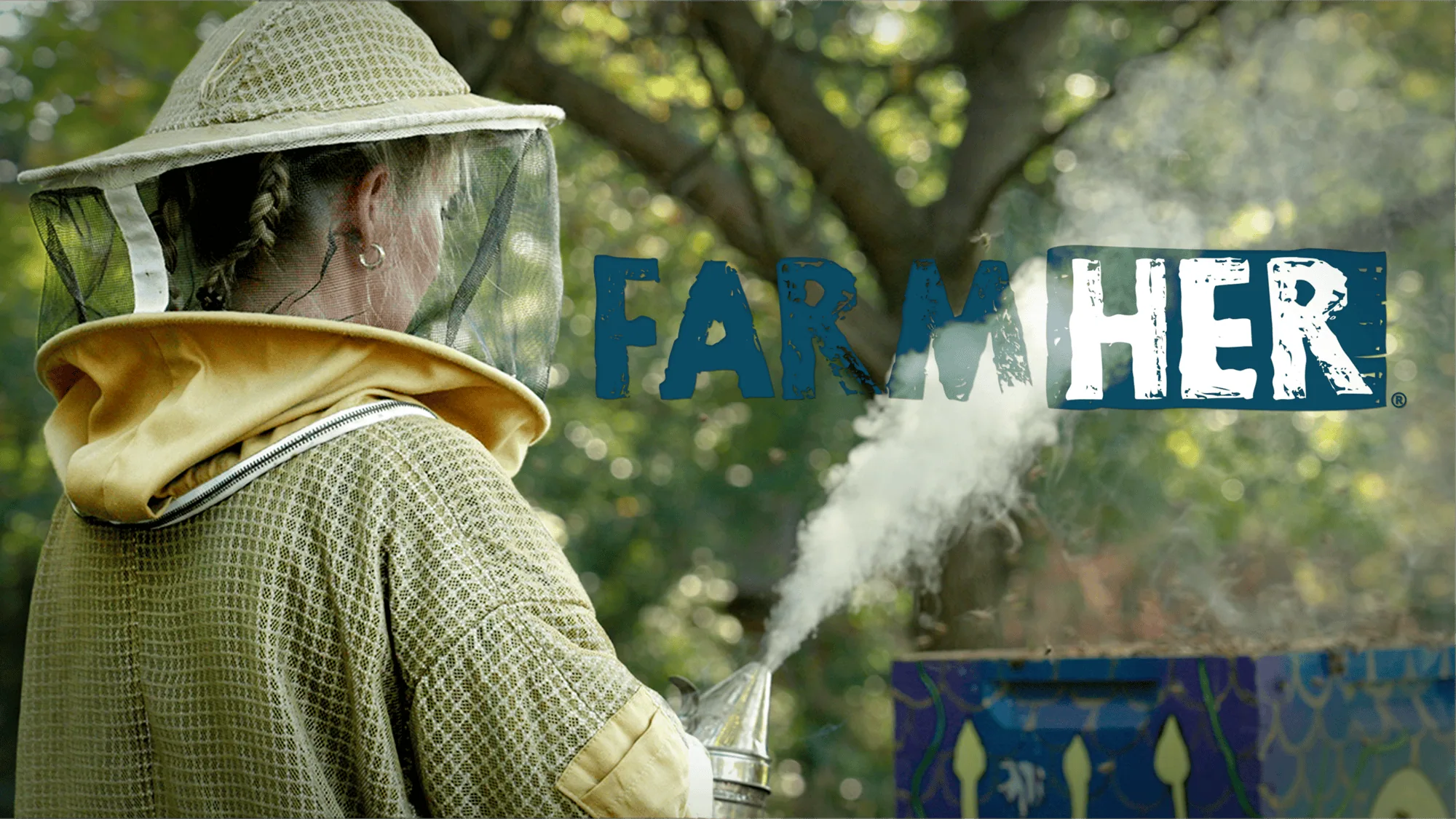Step into the wonderful world of Wild Harvest Honey Farm where FarmHER Amber Rutledge is the Queen Bee and Honey Connoisseur of her family’s Illinois multi-generation honey operation. Amber is a true honey lover and one of the sweetest faces you’ll find in the American honey scene!
Wild Harvest Honey
Amber’s farm boasts a rich beekeeping legacy spanning many generations, starting with her grandfather, Ernest Boring, who happened upon the family’s future home by happenstance while traveling through the state after serving in World War II.
“Every happy memory I can remember as a kid was playing outside here, building things with my grandpa or my dad,” Amber said. “My grandpa ended up getting sick when I was still in high school. He passed away. [The farm] just sat empty for so many years that it was kind of sad to see the fun I had here not existing anymore.”
Since then, Amber has restarted her family’s honey farm. Not only that, but she’s also continued to expand her beekeeping knowledge and build on her family’s commitment to conservation and advancing community education around bees, honey, and their vital role in our food system.
From the lively apiary to the fragrant gardens, Wild Harvest Honey is abuzz today, offering tours, tasting, and a variety of honey and related products for consumers to try and buy.
“I think my grandpa would be very happy,” she said. “I’m really hoping that we keep growing and we keep going.”
God Save the Queen Bee
Amber conducts educational farm tours to raise awareness about bees and dispel fears and misconceptions about the insects and their products.
The hives’ hierarchy and the reproduction process of queen bees are some of the most fascinating aspects of Amber’s guided journey of her honey operation, each one housing around 50,000 hardworking bees. Of those thousands, each hive contains only one Queen Bee. Each queen has a lifespan of three to four years… or until the colony votes for a successor, which may result from a “queen war.” (It’s as dramatic as it sounds!)
Colonies also do not mix, and intruders trigger an attack response from the guard bees to prevent the entry of outsiders with a pheromone that smells like bananas. So, if you ever get a chance to do a hive inspection, skip your banana at breakfast!
A Taste for Honey
Amber is one of a few bonafide Honey Connoisseurs in the United States, a certification that requires an intensive training process through the American Honey Tasting Society. In this course, which is similar to becoming a sommelier of fine wines, Amber learned the distinguish the tastes, flavor profiles, and notes of more than three dozen distinct honey monofluorals.
Amber’s extensive knowledge and palate for honey also allow her to pass along her passion and enlighten her customers (and the FarmHER crew!) regarding the wide variety of flavors and tastes of honey.
We learned that while honey can be sweet and floral, it can also taste just like rosemary or burnt ashes. It can also take on unexpected notes like “barnyard,” “farmy,” and “leathery” flavors based on the environment where it was produced. She also teaches the various uses and flavors of honey.
As with many types of agricultural education, part of Amber’s role is also to fight misconceptions about her work as an apiarist – from spotting artificial products on store shelves to rescuing crystalized honey from the garbage bin.
“Now, a lot of people don’t realize that when honey crystallizes, that’s actually a good sign – not bad,” Amber explained. “So many people throw their honey away when it crystalizes.”
To learn her secret to fixing crystalized honey – and why it’s such a good thing – you’ll have to wait and watch the episode!


